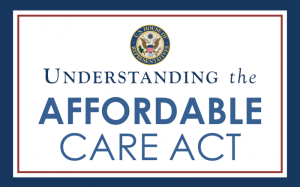- ABOUT US
- TAX SERVICES
- RESOURCES
- CAREERS
- (888) APRIL-15
- BOOK NOW
- CLIENT LOGIN
- FIND A TAX OFFICE
- (888) APRIL-15
- BOOK NOW
- PRICING & PROMOTIONS
- TAX SERVICES
- ABOUT US
- RESOURCES
- CAREERS
- CLIENT LOGIN
Understanding Obamacare: How The Affordable Care Act Will Affect Your Taxes

Certain provisions of the Patient Protection and Affordable Care Act (PPACA) are set to take effect in 2014, some of which may have an impact on taxpayers. The PPACA, more colloquially known as “Obamacare,” is the new healthcare law that sets up either a state or government run health exchanges. Along with the change in healthcare accessibility comes a change in taxes.
Whether you agree or disagree with the new law, there’s a good chance that your taxes will be affected by it in one of four major ways:
- You could receive a tax credit to help you pay insurance premiums.
- You will experience a tax increase on Medicare if you fall within a certain income bracket.
- You will have an increased tax on any investment income if you fall within a certain tax bracket; or,
- You will be penalized, via tax, for not purchasing some form of healthcare.
Receiving a Tax Credit
If you qualify (eligibility is determined by income, family size, and age) then you will receive a tax credit that will help you to pay your health insurance premiums at the start of 2014. In order to be entitled to the tax credit, an individual must earn between 100%-400% of the federal poverty line, or approximately between $11,000-$46,000 dollars a year. For a family of four, a family must earn less than $94,000 to receive any portion of a tax credit.
Tax Increases on Medicare
If you make over $200,000 dollars a year as an individual or $250,000 collectively as a couple, the new law adds an additional 0.9% tax on your payroll taxes to pay for the Medicare expansion. The 0.9% tax will automatically be withheld from an individual’s paycheck if the individual earns more than $200,000 per year. However, if you make less than $200,000 per year on your own but are married and you and your spouse make $250,000 dollars or more collectively, the 0.9% won’t be withheld from your taxes—and you will be responsible for paying that amount at tax time.
Tax Increase on Investment Income
Just like the changes in the Medicare tax, this tax increase also focuses on individuals making more than $200,000 dollars per year or couples who collectively make more than $250,000 per year. Unlike the Medicare tax, though, this hike only applies to a tax filer’s adjusted gross income rather than total income. Those who fall within this income category are responsible for an additional 3.8% investment income tax.
Being Taxed for Lacking Insurance Coverage
One of the components of the Affordable Care Act—known as the Shared Responsibility Provision —specifies that obtaining health insurance in mandatory, and a fee will be incurred by anyone choosing not to purchase insurance. The tax will present itself in one of two ways in 2014:
- You will be charged 1% of your income tax, or
- You will be charged $95.00 per year (whichever one is more is what you’ll be responsible for).
The fee for failing to obtain insurance increases thereafter: In 2015 it’s 2% of your income, and in 2016 it’s 2.5% of your income or $695 per person (the maximum fee per family is $2,085). Thereafter, the penalty is increased based on the cost-of-living adjustment. The idea is to eventually charge a fee that’s more or or less in line with the cost of obtaining health insurance, encouraging people to opt into the exchange rather than pay a high fee and received nothing in return.
Please let us know your experience in the comments section below–positive or negative–as it relates to obtaining health insurance on the newly created exchanges.





